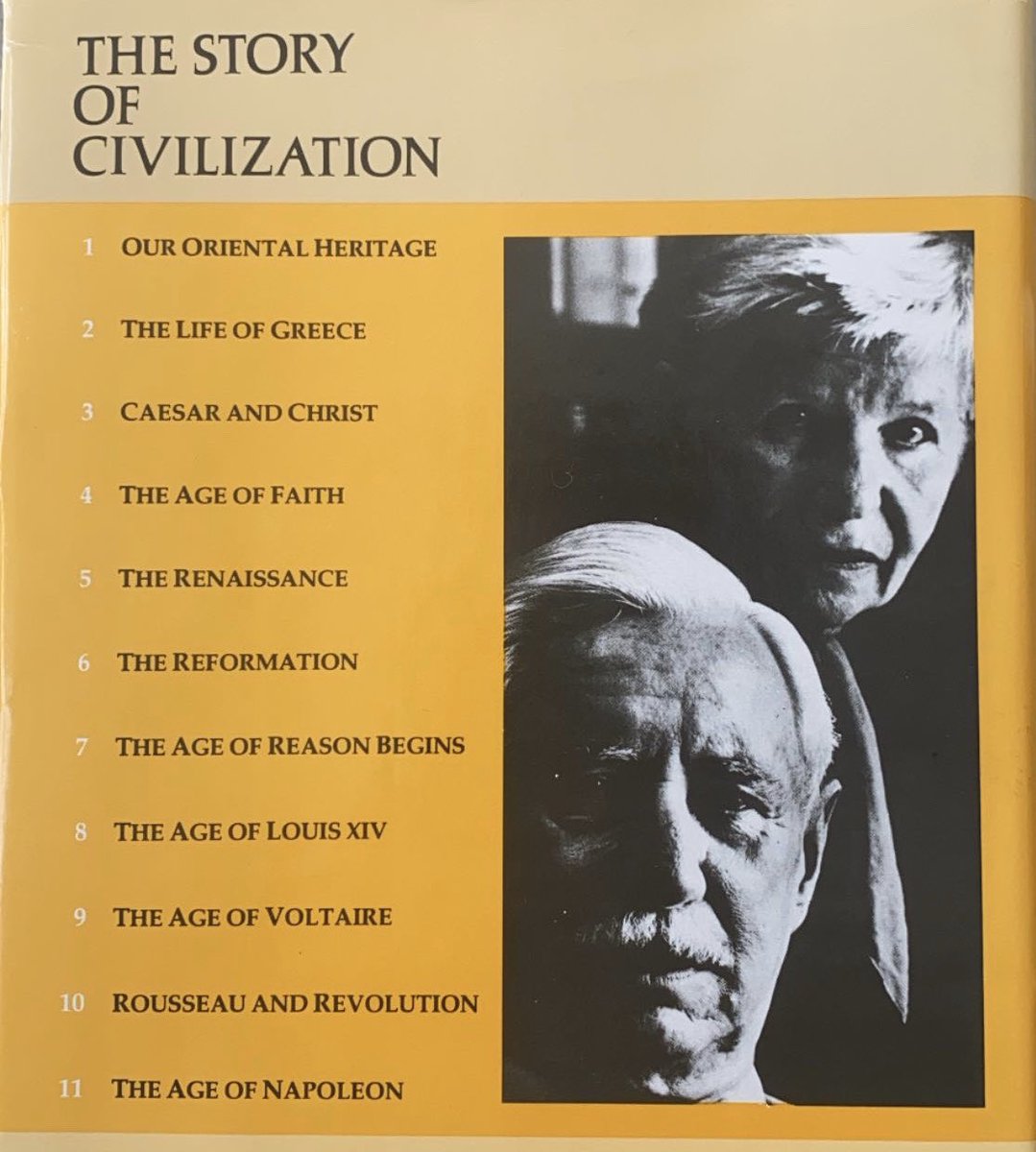My notes on The Story of Civilization, Volume 1, Chapter 2: The Economic Elements of Civilization by Will & Ariel Durant.
In one sense the “savage” too is civilized: He carefully transmits the heritage of the tribe.
The heritage of the tribe is a complex of economic, political, mental and moral habits and institutions which it has developed in its efforts to maintain and enjoy itself on the earth.
It’s impossible to be scientific here, for in calling other human beings “savage” or “barbarous” we may be expressing no objective fact, but only our fondness for ourselves.
Better to call “primitive” all tribes that make little or no provision for unproductive days, and little or no use of writing. In contrast, the civilized may be defined as literary providers.
“Three meals a day are a highly advanced institution. Savages gorge themselves or fast.” Hayes, Sociology
Hunting and fishing formed the foundation for political organization.
For example the Polynesians had nets a thousand ells long, which could only be handled by a hundred men.
In such ways economic provision grew hand in hand with political organization, and the united quest for food helped to generate the state.
Many tribes worked out ingenious techniques to hunt and fish. Many for example threw narcotics into the the streams to stupefy the fish into cooperation with the fishermen.
Birds and animals were caught through many more ingenious traps and tactics.
Hunting today seems like a game, but it used to be a war for security and mastery.
In the jungle there is still a fight for survival, and sometimes only the fighter, or the breeder of fighters, is allowed to eat.
Hunting and fishing were not merely stages in economic development, but they are still today the hidden foundations of civilized society.
We do our hunting by proxy, not having the stomach for honest killing in the fields; but our memories of the chase linger in our joyful pursuit of anything weak or fugitive.
You find the hunt even in the games our children play — even in the word /game/.
In the last analysis civilization is based upon the food supply.
Man started to develop past the unoriginal life of being a mere carnivore, when animal domestication and farming began.
The animals were still eaten, but not so soon. The plants were still eaten, but the seeds were separated and sown to generate a future harvest.
From there technological progress improved rapidly: first a stick was used to till the soil, then it was tipped with bone and fitted with a crosspiece to receive the pressure of the foot.
With the domestication of animals and technological progress, the hoe was enlarged into a ploughing, and the deeper turning of soil revealed a fertility in the earth that changed the whole career of man.
Wild plants were domesticated, new varieties were developed, old varieties were improved.
Finally nature taught man the art of provision, the virtue of prudence, the concept of time.
* Note the ultimate identity of the words provision, providence, and prudence.
* Note the ultimate identity of the words provision, providence, and prudence.
Meat was preserved by smoking it, salting it, freezing it. Man built granaries secure from rain and damp and vermin and thieves.
With the realization that agriculture could provide steadier food supply than hunting, man took one of the three steps that lead from beast to civilization: Speech, agriculture, and writing.
It is not supposed that man passed suddenly from hunting to tillage. Many tribes remained permanently becalmed in the transition.
Not only was the change gradual, but it was never complete. Man merely added new ways to secure food to the old ways.
And for the most part, throughout history, man has preferred the old food to the new.
Primitive peoples are ravenously fond of meat even when they live mainly on cereals, vegetables, and milk.
If they come upon the carcass of a recently dead animal the result is likely to be a wild debauch, the animal is eaten often raw, as fast as good teeth can tear.
The uncertainty of food supply made nature peoples omnivorous. Man ate shellfish, sea urchins, frogs, toads, snails, mice, rats, spiders, earthworms, scorpions, moths, centipedes, locusts, caterpillars, lizards, snakes, boas, dogs, horses, roots, lice, insects, larvae, ...
The discovery of fire limited this indiscriminate voracity, and cooperated with agriculture to free man from the chase. Cooking broke down the cellulose and starch of a thousand plants indigestible in their raw state.
If man began with speech, and civilization with agriculture, industry began with fire.
First it provided light, then warmth, then it tamed metals. But fire wasn’t made by man but by nature, and always remained a miracle to primitive man, fit to be worshipped as a god.
Man carried fire carefully with him wherever he went. Even the Romans still punished with death the careless vestal virgin who allowed the sacred fire to be extinguished.
Tool use became more commonplace, and no tool was more versatile than the stick. So the stick became a symbol of power and authority: from the wand of the fairies and the staff of the shepherd to the rods of Moses and Aaron.
In agriculture the stock became the hoe, in war it became the lance or javelin or spear, the sword, or bayonet.
Endless amounts of tools and items were made by primitive man from fiber, rock, wood, horn, ivory, ...
The ingenuity of primitive men probably equaled - perhaps it surpassed - that of the average modern man.
We differ from primitives through the social accumulation of knowledge, materials, and tools, rather than through innate superiority of brains.

 Read on Twitter
Read on Twitter


